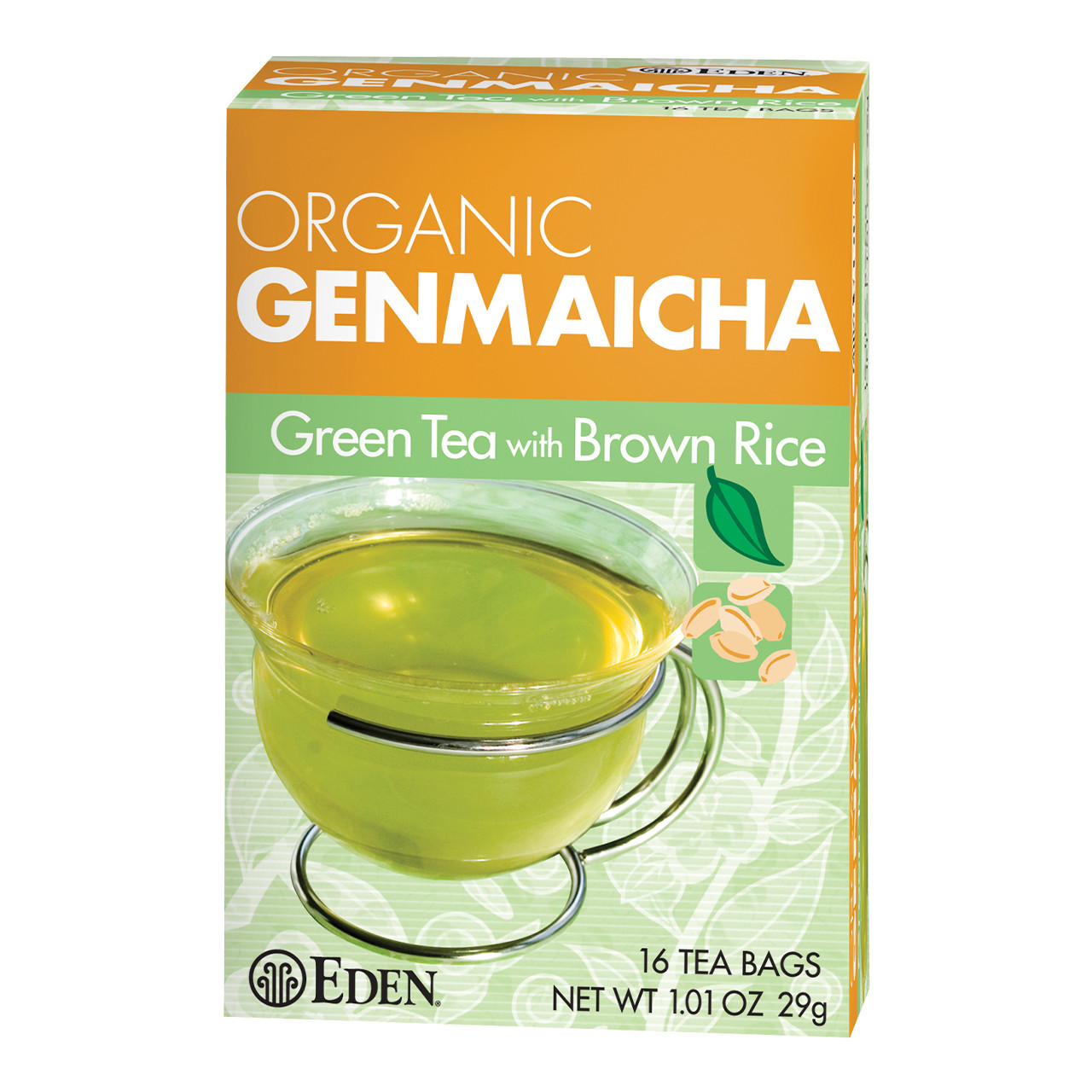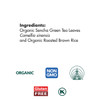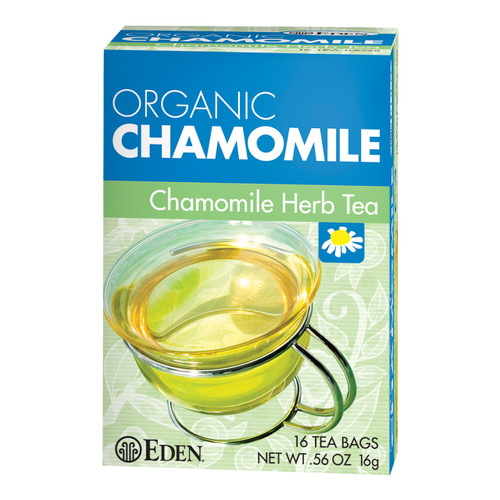Early spring green tea leaves, organic sencha, and roasted organic short grain brown rice. The combination of flavors and aromas sparkle. Serve hot, chilled, or iced. Refreshing with a slice of citrus added. Antioxidant catechin benefits. People and planet appropriate tea bags. ![]()
MORE DETAILS
Organic Eden Genmaicha Tea is traditionally cured organic sencha green tea leaves and roasted organic brown rice. 'Genmai' means brown rice in Japan, and 'cha' means tea. Prized, young, tender spring leaves near the top of the bush are picked and immediately steamed and rubbed, then rubbed again after they are cool and dry. This uniquely preserves beneficial antioxidants and the chlorophyll of the leaves. Brown rice is roasted until golden, and coarsely ground. Genmaicha is a joy during any season, hot or chilled. It is especially good as iced tea, add some citrus! Delightful soothing sencha with roasted whole grain.
All true teas stem from the plant Camellia sinensis, a medium height evergreen shrub with gentle rounded leaves. Tea becomes green, black, or other varieties depending on the time of harvest, and how it is cured and handled. Tea begins to oxidize as soon as it is picked. Chinese and English teas allow oxidation to proceed as they dry, but with Japanese green tea oxidation is skillfully halted with a steam and rubbing process.
Eden Sencha is organically grown on a remote, centuries old tea plantation near Uji, Japan, the Nagata Co-op. In early spring, the bushes are shaded with netting or traditional bamboo screens to protect new leaves from harsh sun. Most commonly, the first spring leaves are made into gyokuro jewel tea, Japan's rarest tea and also the one used to make ceremonial grade, powdered green tea matcha. At the Nagata Co-op these first, most prized leaves are used to make Eden Sencha green tea, also the foundation of Eden Sencha Blends.
The Nagata Co-op replenishes the soil only with vegetable quality compost. They do not use manure, chemical fertilizers, herbicides, or pesticides. While commercial tea is sprayed with chemicals 15 to 20 times per year, the Nagatas completely rejected chemical agriculture in 1974. Chemically grown plants burn out in about twenty years, but the Nagata bushes produce for 40 years or more, some for as long as 100 years.
Uji is the historical name for the surrounding districts near and including the ancient capitals of Nara and Kyoto. It is here that the Buddhist priest Myo-e planted Uji's first tea shrubs in 1221 to meet the growing demand for green tea. This area is famous for producing the best quality green tea in Japan. Tea from the area is highly regarded and called Uji-cha. Uji's rich, slightly acidic soil is ideal for growing tea bushes and early morning Uji river mist moistens the leaves and shields them from sun.
The flavor of tea reflects the soil it is from, the season picked, and the curing process. The sencha tea and brown rice of Eden Genmaicha is from strict organic practices. The Nagatas are dedicated to organic farming and renewing the soil. Organic dedication is tangible as you experience these teas and their benefits.
Most tea bags contain a plastic so they can be heat sealed. This is no way to treat people or good tea. Eden tea bag are unbleached manila fiber, a crimp seal, and pure cotton string; no whiteners or plastics, no flavorings or dyes.
Green tea has been the focus of medical research in many countries recently. The studies affirm green tea's beneficial properties. Antioxidants, including epigallocatechins gallate, tannins and flavonoids, all collectively referred to as 'catechins' are cited. These polyphenols account for up to 40 percent of the tea's dry weight.

















